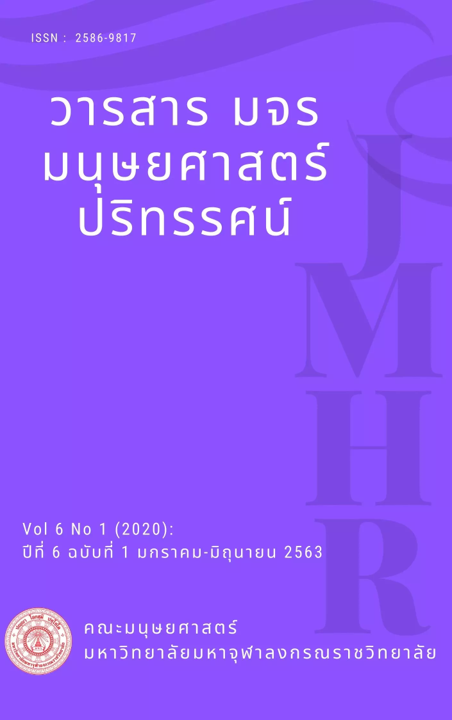แนวทางการพัฒนาสมรรถนะด้านจริยธรรมของบุคลากรสายวิศวกรรม
คำสำคัญ:
การพัฒนาสมรรถนะ, จริยธรรมบุคลากร, จริยธรรมในวิศวกรรมบทคัดย่อ
บทความนี้มีวัตถุประสงค์ เพื่อเสนอแนวทางการพัฒนาสมรรถนะด้านจริยธรรมของบุคลากรสายวิศวกรรม โดยวิธีการวิเคราะห์เชิงเนื้อหาจากเอกสารและงานวิจัยที่เกี่ยวข้องพัฒนาสมรรถนะสำหรับบุคลากรสายวิศวกรรมตามหลักพระพุทธศาสนา พบว่า แนวทางเสริมสร้างคุณลักษณะเชิงพฤติกรรมเพื่อให้เกิดความถูกต้อง ดีงาม มีจิตสำนึกในด้านความดีและมีคุณธรรมภายในจิตใจด้วยวิธีการประยุกต์หลักธรรมกำหนดเป็นแนวทางการพัฒนาสมรรถนะด้านจริยธรรมได้แก่ กระบวนการพัฒนาสมรรถนะตามหลักไตรสิกขา และประเมินผลการพัฒนาสมรรถนะ 4 ด้าน ได้แก่ พัฒนาสมรรถนะทางกาย พัฒนาสมรรถนะทางสังคม พัฒนาสมรรถนะทางจิตใจ และพัฒนาสมรรถนะทางปัญญา
เอกสารอ้างอิง
พระโกมินทร์ สนฺติกโร (พัฒนศิริ). (2559). การบูรณาการหลักพุทธธรรมในการพัฒนาเยาวชน ศึกษาเฉพาะกรณีพระราชวชิรเมธี, ดร. (วีระ วรปญฺโญ), วารสารบัณฑิตศึกษาปริทรรศน์, 4(2), 2.
พระมหาประสิทธิ์ ญาณปฺปทีโป. (2561). บูรณาการพุทธจิตวิทยาและพุทธิปัญญาเพื่อพัฒนาการคิดแก้ไขปัญหาชีวิตด้วยการเข้าร่วมกิจกรรมคุณธรรม. วารสารพุทธจิตวิทยา, 2(1), 58.
ยุทธศาสตร์ชาติ 20 ปี. (2562). แผนพัฒนาเศรษฐกิจและสังคมแห่งชาติ ฉบับที่ 12 และการปฏิรูปประเทศ, สืบค้นวันที่ 31 มีนาคม, จาก htttps://planning.tu.ac.th/Uploads/planning/pdf/plan/plan20pdf
สถาบันพลังจิต ธรรมะ จักรวาล. (2553). หนังสือรวบรวมการอบรมรุ่น. กรุงเทพฯ : สำนักพิมพ์สถาบันพลังจิต ธรรมะ จักรวาล
Bandura, A. (1989). Social cognitive theory. In R. Vasta (Ed.), Annals of child developmentVol. 6. Six theories of child development, Greenwich : CT JAI Press.
Schunk, D. H. (2004). Learning Theories an education Perspective (4th Ed.). The University of North Carolina U.S.A., Pearson Education Inc., Publishing as Allyn & Bacon.






